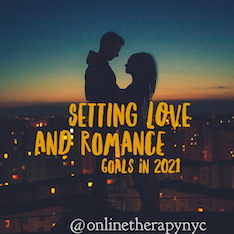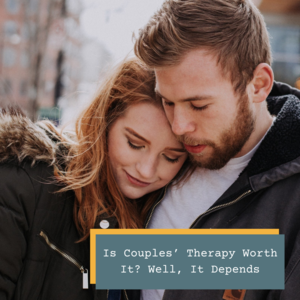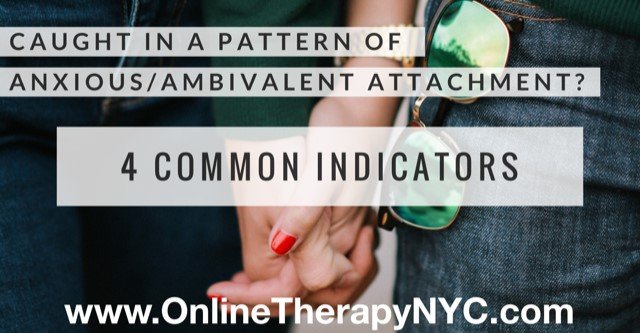As seen in:

Attachment Therapy
It’s possible to stop the cycle of dead-end relationships…
…and find (or nurture!) lasting love when you have the right support. The attachment therapists at our New York City psychotherapy practice have been helping individuals and couples maximize their romantic potential for years, and they can help you do the same. Additionally, our online therapy services allow you to attend counseling sessions from anywhere in New York state. To start understanding and breaking the cycles of your attachment style, read more below.
-
Do your relationships often end in heartbreak? You may have thought your last partner was “the one,” only to have things suddenly fall apart. If so, you may feel confused, dismayed, and rejected.
Does your love life feel chaotic or one-sided? If you’re in a relationship right now, you might feel like you’re the only one putting in real effort. Maybe your partner doesn’t make you feel loved or even bother to respond to your texts. On the other hand, you may feel overwhelmed if your partner pushes the relationship forward faster than you’re comfortable with.
Do you blame yourself for romantic disappointments? Maybe you’ve been rejected one too many times, or the person you’re dating doesn’t want a serious relationship. You may be feeling increasingly unconfident or even unworthy of love. This can happen despite your strengths and accomplishments. It could also be that you’re in the opposite situation. Maybe your partner’s demands for attention make you feel overwhelmed and suffocated.
-
Many people who experience relationship conflict either blame themselves or their partners. If you and your partner can’t stop fighting, there’s a chance that you may be a poor match. However, it could also be that you and your partner have different expectations about what it means to be in a relationship. According to the psychological principles of attachment theory, these differences are part of your “attachment style.”
Attachment styles determine a lot about a person’s beliefs. These include their assumptions and expectations when it comes to relationships. Individuals don’t choose their own attachment styles. Instead, they form subconsciously during childhood in response to their care environment. Through no fault of their own, most people end up with some form of “insecure” attachment, which can cause problems later in life.
-
Until a person does the introspective work needed for a healthier attachment style, their style won't change. Without the work, they will be stuck with whatever style they developed in childhood. When people with different attachment styles (or even the same style of insecure attachment) form a relationship, conflict often arises. In many cases, one partner needs reassurance and closeness in a relationship, while the other needs space and independence. This common situation creates a lot of pain for both partners.
Fortunately, insecure attachment and relationship conflict can be overcome through education and self-awareness. Both partners have the power to attachment therapists make their relationship healthier and more satisfying by getting working through attachment therapy for any issues that have arisen. And don’t worry, the empathetic attachment therapists here at our New York City-based practice are here to help.
-
If you want to overcome the attachment issues that seem to ruin your relationships, the first step is to identify your attachment style. An experienced attachment therapist can help you do this by first teaching you the basics of attachment theory. It helps to first learn the most common attachment styles and how they affect relationships. In doing so, you may recognize that you have some tendencies toward insecure attachment.
As you gain self-awareness, you’ll begin to understand why you tend to date people who trigger your attachment issues. Rather than thinking your instant attraction to a new love interest must be “chemistry,” you’ll start wondering what the real cause is. Going through attachment therapy can help you understand how your attachment style might be holding you back in your romantic life. A therapist can help you recognize habits that may have been making your relationships worse and help you find ways to break these patterns.
-
For example, if you have some traits of the anxious attachment style, you may feel insecure when your partner is away from you. This could be while you’re physically in the same place, just in different rooms, or while you’re geographically distant from one another. This could also happen when you don’t hear back immediately after a great first date. Your gut reaction might be to call or text your partner/date repeatedly in an attempt to get their attention. Even if they might be a good match for you, your persistence might push them further away.
At first, it can be discouraging to realize that your subconscious behaviors might be ruining your relationship goals. At the same time, this realization can be really empowering. Expecting your partner to change will only end in disappointment. But, you can create positive change by taking responsibility for your own behaviors.
At our online psychotherapy practice, attachment therapy focuses on the different attachment styles. Our therapists can help you set healthier boundaries no matter your particular attachment style. If you are a people-pleaser, therapy can help you recognize your worth, communicate your needs, and focus on self-care. Or maybe you’re more the avoidant type. If your partner makes you feel smothered, talking through it with a therapist can help. We will help you communicate your boundaries without triggering your partner’s insecurities.
-
Individual therapy for attachment issues, as well as couples’ therapy, can help you understand yourself and your partner better. Once you become more aware of how your attachment style colors your perception, you’ll gain a clearer view of your own and your partner’s needs and priorities. If their priorities don’t align with yours, talking it through with a therapist can make it easier to notice.
Therapy can also prevent you from taking your partner’s actions too personally. For example, imagine that fear of vulnerability is part of your attachment style. As you look back on your past partnerships in attachment therapy, you might realize that you tend to push people away when they get too close. The next time you feel the urge to judge your partner, you can ask yourself “Is this issue really a deal-breaker for me? Or am I just afraid of getting too close?” It could be very important to your future relationships to learn the difference now!
Attachment therapy is highly effective for fixing attachment issues. We have seen couples go from the verge of divorce to happily married and starting families together. On the other hand, we have also seen individuals stuck in toxic relationship patterns gain the insights and self-confidence to free themselves and create new, more fulfilling love lives.
Some of our patients have been shocked at how much our attachment therapists are able to help. Attachment styles affect all relationships, not just romantic ones. Resolving adult attachment issues can also improve a person’s professional relationships, friendships, and family relations.
Common Questions About Attachment Therapy
Should my partner and I come in together?
Often our patients make important progress when they visit us individually first and focus on their own attachment issues in individual therapy. It’s true that your partner might benefit from therapy too, and that your work might help you understand them better. Remember, though, that you can’t change them. The only person you can shift is yourself, so that's a good place to start. Significant relationship improvements can still happen even when only one partner goes to therapy.
Do I have to talk about my childhood? I don’t want to blame my parents for our problems.
Attachment therapy isn’t about assigning blame—it’s about increasing understanding. Attachment styles are subconscious and involuntary, so you can hardly blame your parents for having insecure attachment styles (or for passing them down to you). It can be really illuminating to consider and reflect on how you and your parents (and maybe even their parents or beyond) were raised. In fact, it’s typically the best way to initiate meaningful change.

Understand Your Relationship Attachment Style
Other Therapy Services at The Keely Group
Our therapy practice based in New York City offers many mental health services for busy people on the go. Plus, with online therapy in New York, we can help you in a more time-effective manner. Our therapists provide anxiety treatment and can also help you reach your professional goals with executive coaching. Additionally, we are trained to help with therapy for dating, counseling for parents, and fertility counseling. Further, we offer Latinx therapy, provided by our skilled Latinx therapists. Our team wants to be here for you and help you to reach your best self in whatever way possible. Get started today!

Want to Learn More?
Check out our blog articles about attachment style.























